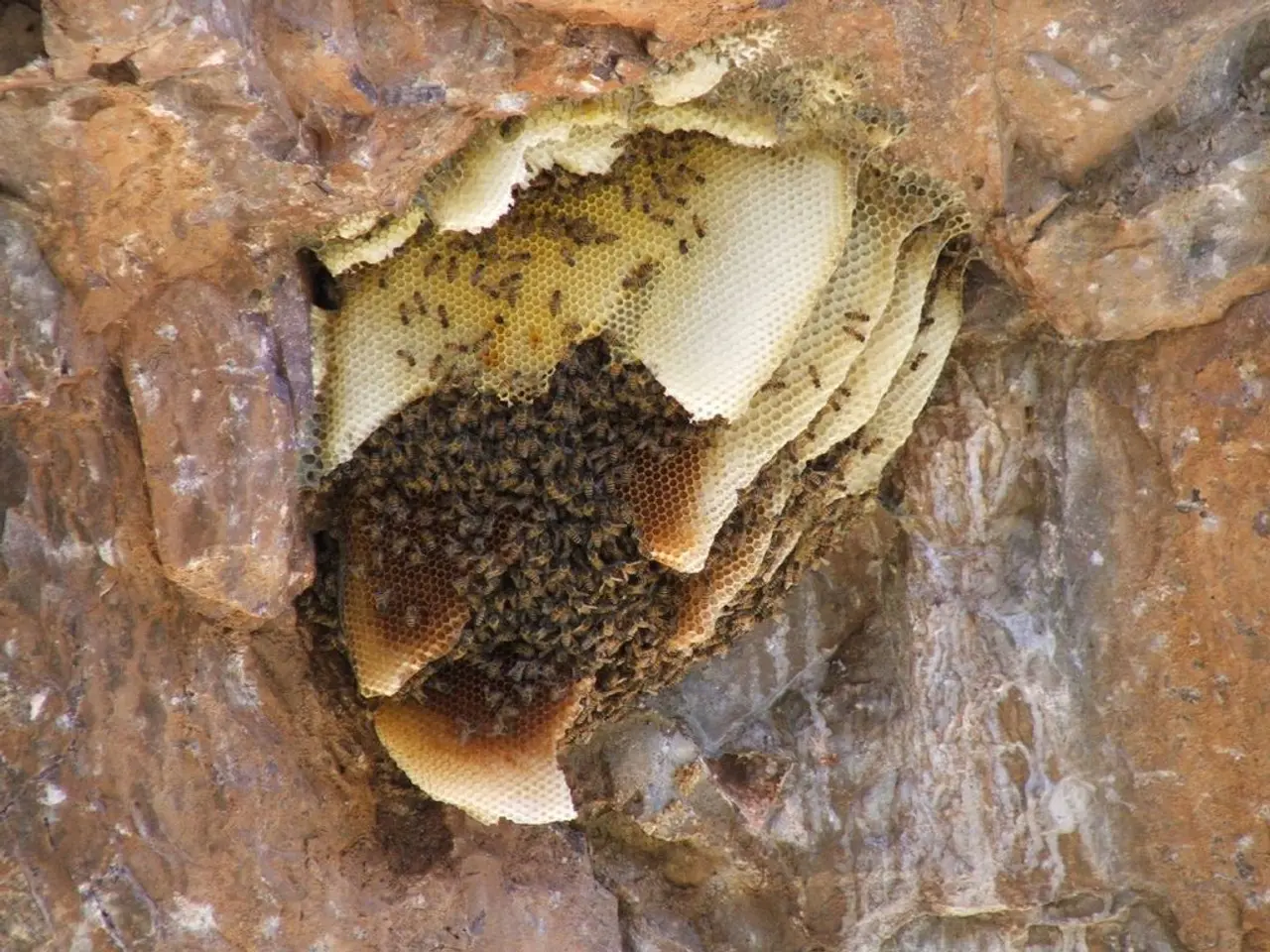Natural Treatments for Hives: Examining Various Herbs, Home Remedies, and Additional Solutions
In the quest for effective treatments for hives, a common skin condition characterised by itchy welts, many turn to natural and herbal remedies. However, the evidence supporting these alternatives is often limited, especially when it comes to hives.
While some herbal medicines have shown promise in allergic skin diseases, no herbal remedies have scientifically validated efficacy specifically for treating hives in humans.
One such herb with some scientific support is Phellodendron chinensis, a traditional Chinese Medicine (TCM) herb. Clinical reports suggest that it improves symptoms associated with atopic dermatitis, a related allergic skin disease. However, there are no direct hive-specific trials available.
Indigo naturalis, another TCM herb, has shown potential benefits. Topical use of this herb has been reported to improve eczema symptoms and reduce inflammatory markers. However, it may cause skin discoloration.
Ling zhi, or Reishi mushroom, exhibits steroid-like properties and has been used in the treatment of allergic conditions. Yet, robust clinical trials specifically for hives are lacking.
Butterbur, a plant used in hay fever treatment, has no specific evidence for hives. Similarly, evening primrose oil and fenugreek seeds, traditionally used for skin allergies, lack scientific evidence for hives.
Mainstream allergy experts emphasise that there are no natural/herbal treatments scientifically proven specifically for hives. Standard care relies on antihistamines and occasionally biological drugs like omalizumab, especially for chronic or antihistamine-resistant cases.
If someone is considering herbal treatments, it is crucial to consult a healthcare professional due to potential side effects and interactions.
For those dealing with hives, home remedies may offer some relief. These include avoiding triggers, taking cooler showers, avoiding sun exposure and hot environments, and taking vitamin D supplements.
If hives do not respond to treatments or worsen, it is essential to contact a doctor.
Anaphylaxis, a severe allergic reaction that can be life-threatening, requires immediate medical attention. Symptoms include hives, swelling, wheezing, fast heart rate, clammy skin, anxiety, dizziness, vomiting, blue or white lips, fainting, and loss of consciousness. In case of anaphylaxis, use an epinephrine pen, call emergency services, and assist the person until help arrives.
Emergency services should be contacted immediately if anyone experiences symptoms of anaphylaxis. If symptoms of anaphylaxis do not improve after using an epinephrine pen, a second pen can be used if the person has one.
In summary, while some herbal medicines show potential for allergic skin diseases, their effectiveness for hives is not yet established. Standard antihistamines and medical treatments remain the recommended options for hives. If in doubt, always consult a healthcare professional.
- Despite the popularity of natural and herbal remedies for hives, no herbal treatments have been scientifically validated for hives in humans, such as Phellodendron chinensis and Indigo naturalis, which have shown promise in related allergic skin diseases.
- Ling zhi, or Reishi mushroom, and herbs like butterbur, evening primrose oil, and fenugreek seeds, traditionally used for skin allergies, lack scientific evidence specific to treating hives.
- Mainstream allergy experts recommend standard care for hives, including antihistamines and, in some cases, biological drugs like omalizumab, especially for chronic or antihistamine-resistant hives.
- For those who choose to consider herbal treatments, it is crucial to consult a healthcare professional due to potential side effects, interactions, and the lack of scientifically proven hives treatments in this area of health-and-wellness and skin-care therapies and treatments.




